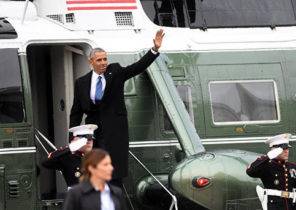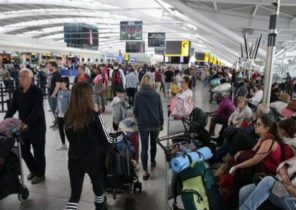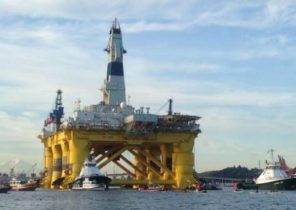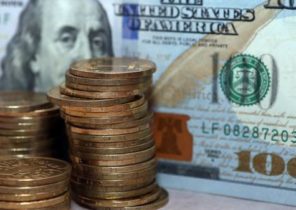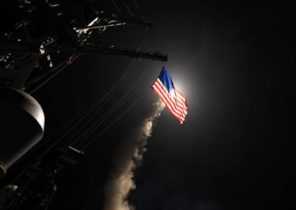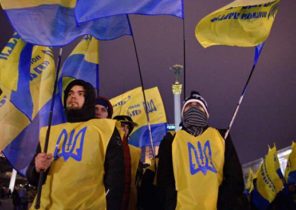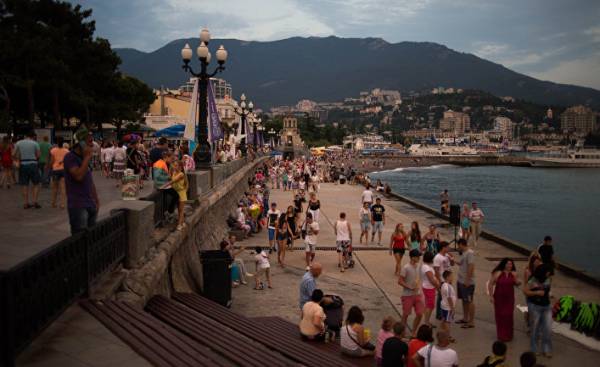
Russia’s annexation of Crimea was the most dramatic and significant violation of international norms since the end of world war II. No territory in Europe after the war became a direct victim of the annexation, and at the international level in General, it is not something usual.
In the analysis conducted by the analytical center Atlantic Council, which referred to JP 24.07.2017, it is concluded that there is no guarantee that something similar can’t happen again. We must do everything to avoid this, because the political and human consequences of the Russian annexation of Crimea is huge.
I’m one of the few who visited the Crimea after the Russian annexation, and I have not taken much time to understand that the situation on the Peninsula is not normal. In Crimea, saying in a low voice, in any case, if the speaker is critical of the inclusion of the Peninsula in structure of Russia.
Especially concerned about the Tatars, a Muslim minority in Crimea. The same can be said about the remaining leaders of civil society and the shoemaker from a bleak outskirts of the main city of the Peninsula Simferopol, which I have visited.
He is quite clearly afraid to speak loudly, despite the fact that in this tiny box, except the two of us, nobody else.
Methods of the Russian authorities taking the form of intimidation and indirect threats, is well known. The difference between Crimea and the rest of Russia lies in the fact that in the Crimea is ruled by both the official Russian authorities and the self-proclaimed militia.
The militia takes over a tough job, and much indicates that many cases of disappearance and kidnapping of political opponents are the self-proclaimed militia.
However, large banners with Putin on the walls give the impression that it is not so that all was well after Crimea returned home to “mother Russia”. And the truth is: the pensions and salaries of civil servants has increased dramatically, but the same can be said about prices, so many, especially the elderly part of the population of Crimea, money is not more than when the Peninsula was part of Ukraine.
In General, the Russian authorities were forced to recognize that to occupy the country — it’s not so simple.
A number of practical problems have not been solved so far. For example, large banks backed down for fear of Western sanctions. In Crimea you will see even partially state-owned Russian Sberbank.
As a result, foreigners can not use their Bank cards in Crimea — Russian, too, are unable to do so. Transport links with the Peninsula is also complicated, so the Russian government has allocated huge subsidies to force Russian airlines to fly to Crimea.
Initially, in the Crimea became Russian citizens. How many of the residents actually wanted to change nationality is unknown, because if someone wanted to keep my Ukrainian passport, it was necessary to declare officially. Persons who have been in prison if it had, they became citizens of Russia.
For many the choice is really not there, if they wanted to keep their jobs. According to Russian law, all civil servants should have the Russian citizenship.
However, people who refuse to be citizens of Russia, are at risk of losing the residence permit and, thus, can potentially be evicted from their own homes.
However, he says the fact that many, instead keep your passport, choose another form of silent protest. They preserved the Ukrainian license plates.
It is naive to think that the Crimea will become Ukrainian again, but this does not mean that we should forget about the Russian occupation. The occupation must become a mill millstone around the neck of Putin in international Affairs. The lack of determination and the growing fragmentation among the countries of the West can easily lead to the fact that the Kremlin wants to do something similar in other places near Russia.
If Western norms and values — not only toast, this requires us to ensure that we condemned the hooligan methods of the behavior of Russian and were willing to fight with them.
Jens-Christian lutkin (Jens-Kristian Lütken) — Deputy Chairman of the European movement (Europabevægelsen), Copenhagen
